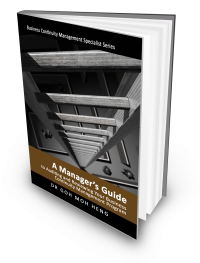From BCMpedia. A Wiki Glossary for Business Continuity Management (BCM) and Disaster Recovery (DR).
Jump to navigation
Jump to search
| 1. Audit Program is a series of steps to achieve an audit objective.
Notes (1): The organizational structure, commitment of resources, and documented methods used to plan and perform the audits.
Notes (2): Standardized Audit Program is a document developed to serve as a checklist of questions to be asked during an audit. It is a step-by-step set of audit procedures and instructions that should be performed to complete a specific area of the audit.
2. The audit program establishes the procedures necessary to complete an efficient and effective audit. It includes a detailed plan of the work to be performed as well as the steps required to achieve the audit objectives. There should be sufficient detail for less experienced staff to perform the steps however it should not be overly detailed whereby it might cause auditors to execute steps routinely and override their judgment. |}
|


